To stay fall-proof is a major challenge. The older we get, the more we’re at risk.
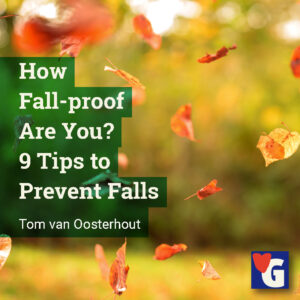
Yet, falls are something where prevention pays off the most. Falls prevention also agrees with many of the suggestions we do at AGEwithCARE.
If you take care of your overall health, your chances to fall will decrease. Moreover, prevention of falls makes a lot of sense for everybody.
Some of the links might be affiliate links. As an affiliate associate, we earn a small commission when you purchase any of the products offered through the shared links at no extra cost for you. This helps us to maintain this website.
Table of contents
Invest in yourself

The best news is that you can actually prevent most falls yourself. If there is any profitable investment in your overall physical self, it’s fall prevention.
In this article, you’ll find many recommendations.
You can use this blog as a list to check how fall-proof you already are. If you think it’s wise to make some changes, or it’s all new for you, try to take small steps at a time.
Endurance counts
Why is endurance in fall prevention important? Let me give you the example of Hannie. She exercises every day. Most of the exercises are meant to strengthen the muscles that support her spine. Because that’s the weak point of her body.
There is only one specific exercise she hates. This one exercise strengthens her hips. This is important for her back but also helps her to keep in balance.
She learned to appreciate her exercises more, and specifically the one that supports balance when her mother twice broke her hip because of a fall. After those falls, her mother never stepped on her bicycle again and had trouble walking.
Program your exercises
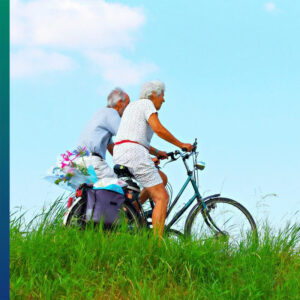
It’s very satisfying to stay physically active, to exercise regularly. Exercise strengthens your muscles and keeps your joints, tendons and ligaments flexible.
This flexibility has two specific functions. It helps you to maintain balance and forestalls injuries when you fall. And don’t forget that exercise prevent loss of bone structure from osteoporosis.
If you have trouble getting going, try to program your exercises. Build it in your Morning Routine. When you start the day by exercising you can’t forget it during the day when life comes in between.
A good night’s sleep
We’ve already regularly discussed the topic of sleep. A good night’s sleep is a fine start to the day. Sleep helps your body to recover. It will also keep you awake and alert during the day. And being awake and alert prevents falls.
Try to sleep 7 to 9 hours a night. If you regularly have trouble falling asleep or making 7 to 9 hours a night or sleep restless, you might try one of several things. For instance, avoid watching tv or working on your computer or mobile after 8 o’clock in the evening. Or do not eat after 5 o’clock in the afternoon. Light exercises and meditation before you go to sleep will perhaps do the trick for you.
Just try one of these suggestions or combine them by making small changes. Record how your body reacts to these changes and whether you actually sleep better and longer. And whether you feel indeed more awake and alert during the day.
Related: How to Sleep Better and Faster when you’re Aging
Are your eyes and ears fall-proof?
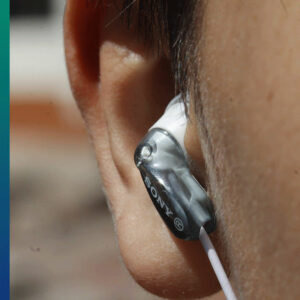
No matter how it makes us feel, getting older comes with impairments. Hopefully later than sooner. However, it’s important you try to cope with those impairments. Some of the most common impairments are diminished eyesight and hearing.
Hannie has been wearing glasses for the most part of her life, I wear them since I was 40. Not much you can do about that. Fortunately, glasses are a big help. As are hearing aids. Use them, if you need them.
If you doubt whether you’re in need of glasses or a hearing aid, you might get your eyes and ears tested. Sometimes the slightest change in sight or hearing may already incite a fall. And one fall might be one too many.
Always pay attention to side effects

Drugs, smoking and alcohol are a consistent step closer to falls. Moreover, they ruin your bones. Bone’s ruined are bound to cause fractures. The older you get the riskier the fractures.
Sometimes medication has the same effect. Unfortunately, it’s not always possible to live without. In which case there is a simple rule: if the medication makes you dizzy or unstable, consult your general practitioner or your pharmacist. Find out what is wrong and whether it’s possible to mitigate these side effects.
Occasionally assistive devices can help you prevent falls. Such as a cane or a walker. However, most people hate to use those. In which case I suggest you ask for appropriate assistance and remember that often the most hated exercises are the biggest help.
Be aware of what you wear
Where we live in Spain it’s very rare to encounter icy streets. Yet, there are often ceramic tiles on the streets and boardwalks that get very slippery when wet. To prevent falls from such slippery tiles it’s important to stay alert of course.
But you should also wear non-slippery, rubber-soled, low-heeled shoes that support your entire foot. The soles of these shoes should not be too thin or too thick. Your shoes must also be in good condition.
Be aware: don’t ever walk in socks or in shoes and slippers with smooth soles on stairs or floors. Not even when they are supposed to be non-slippery.
Do not wear clothes that are too tight or too wide. See to it that your clothes cannot get stuck behind furniture or other in-home obstacles. In general, prevent clothes that can make you trip over them.
Is your home fall-proof?
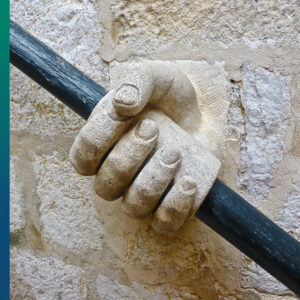
Another action that is perhaps wise to look into, is whether your home is fall-proof. You can make a home risk assessment. Some questions for such an assessment are:
- Do you use non-slippery mats and rugs in the bathroom?
- Are all rooms, passages and staircases well lit?
- Do you have doorsteps?
- Do you need handles to get in or out of the bathtub?
While you’re at your ‘home fall-proof assessment’ you might also explore how your own behaviour inside your home affects the risk of falling. Some examples of ‘fall-proof-behavior’-questions are:
- Do you immediately mop up spills of water or other liquids from the floor?
- Do you leave things lying around on floors or stairs?
- Do you lift or move items that are too heavy for you or which are too difficult to handle?
When after the assessment you’re still in doubt whether your home and behaviour are fall-proof, ask a healthcare professional to take a look at your home and identify potential fall risks.
Eat healthy and maintain bone strength

Eating well is important for your general health. However, the older you get the more you will have to pay attention to strengthening your bones. Strong bones give you balance and prevent fractures in case you might fall. Strong bones make you fall-proof.
See to it that your food contains enough calcium and vitamin D. Physical activity will also strengthen your bones. Try to get at least 1 hour of physical activity a day. If you have trouble getting started, start with small goals at a time. Work yourself up from there.
As said before, and it cannot be said enough, drugs, smoking and alcohol, decrease bone mass and thus increase the chance of fractures. Also, try to maintain a healthy weight. Too light, increases the risk of bone loss. Too heavy increases the risk of falls. And this brings us back to the beginning: take good care of your health and exercise.
Are you stable on your feet? Tell us in the comment box below.


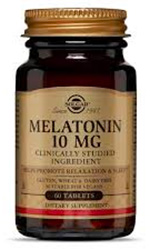
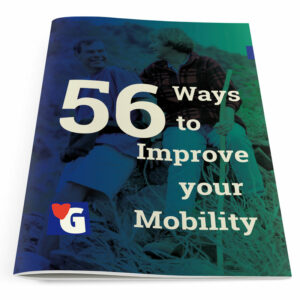
I fell at the swimming pool after Aquafit when my stick slipped. I discovered severe hip arthritis and had hip replacement in January (cerebral palsy meant excessive wear on one side). Now back digging allotment!
Ai, that must have been so painful! Poor you.
So many people fall in the swimming pools. One moment of distraction and there you go.
I so hope you can walk and move the way you want to very soon.
Good luck and take care <3
That is indeed the problem with swimming, Diana. There are substantial risks involved. Inside and outside the water. However, swimming is one of the best types of exercises that will help you to develop health, muscle strength and a good condition. I hope you recover to full satisfaction.